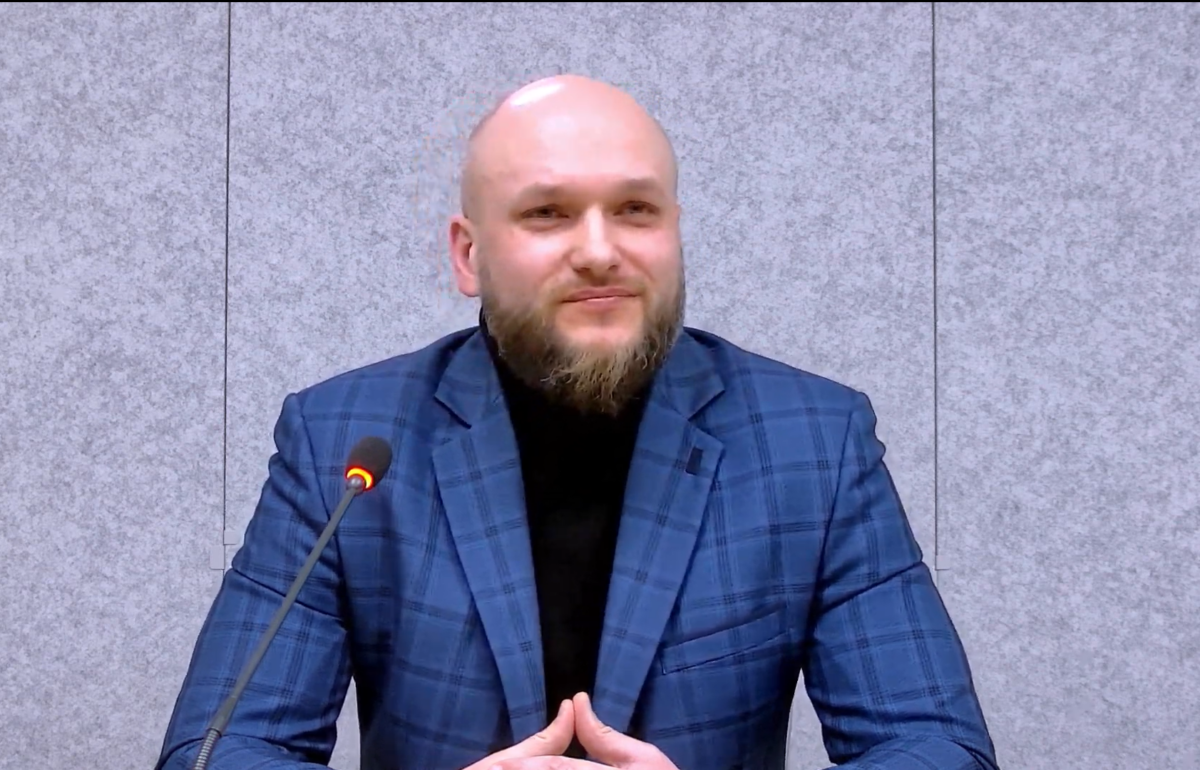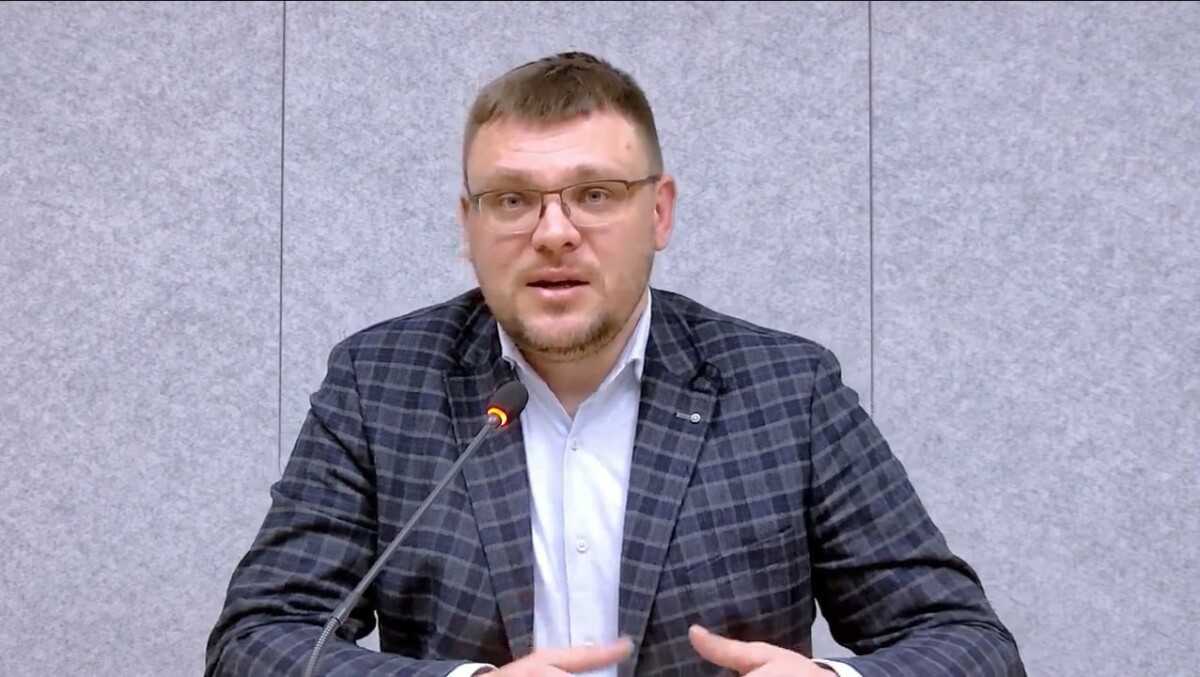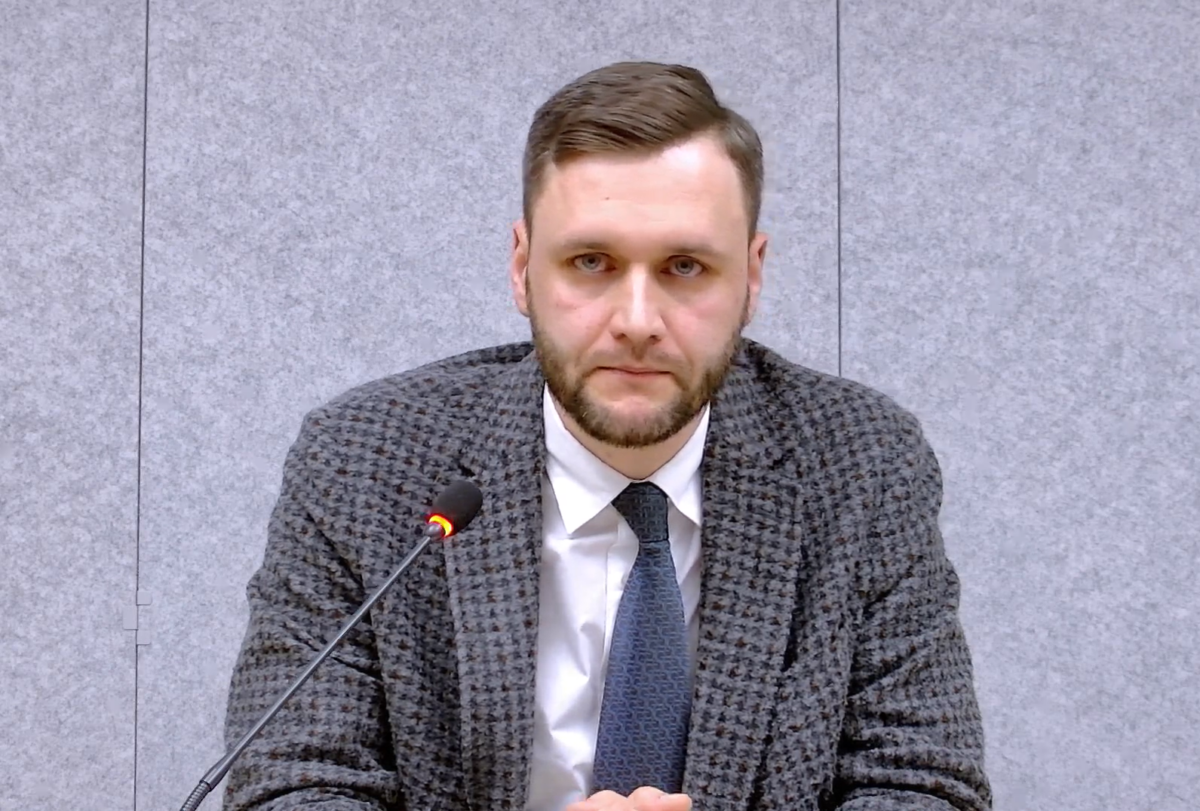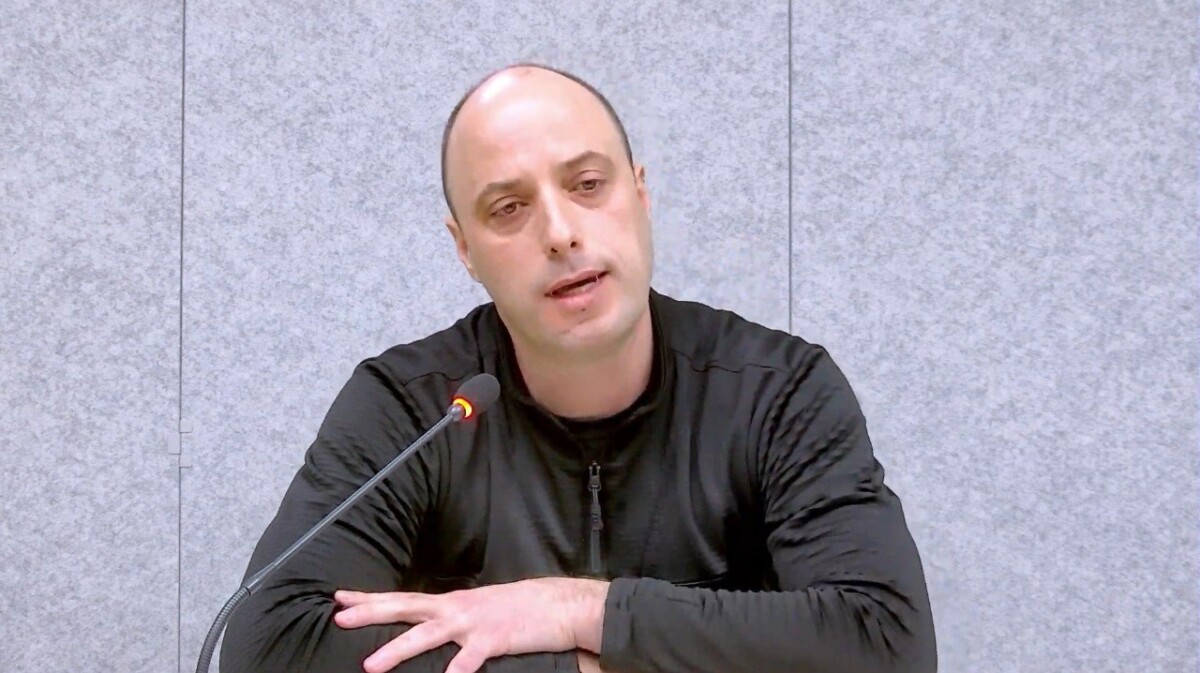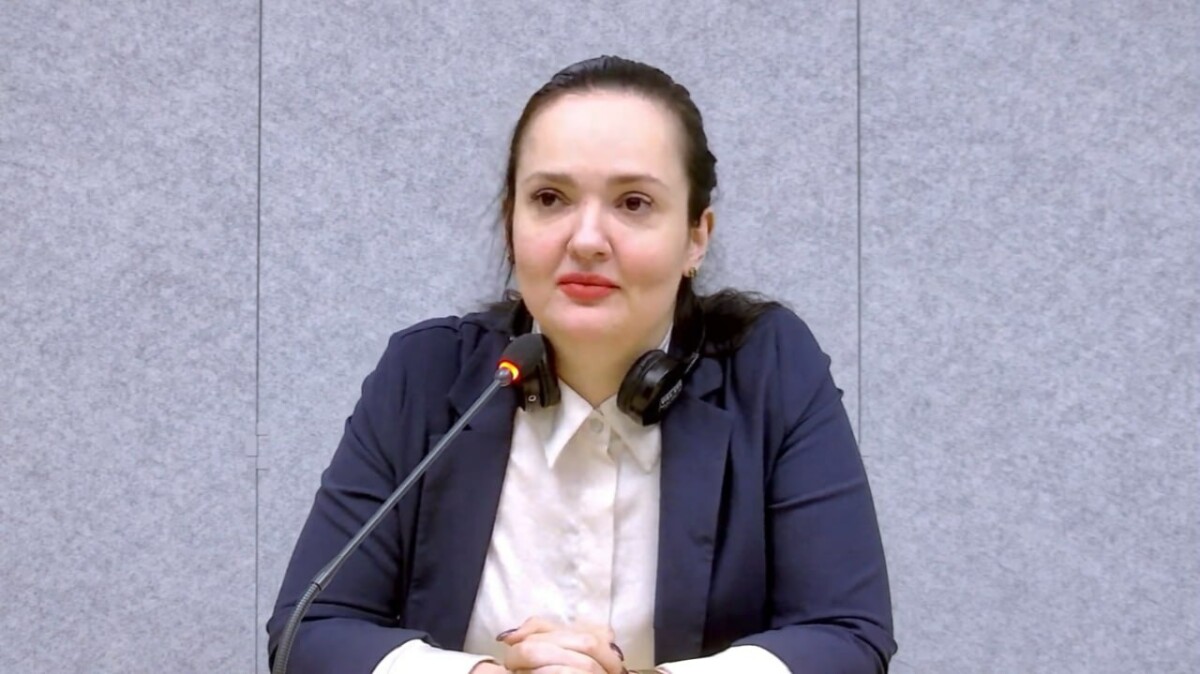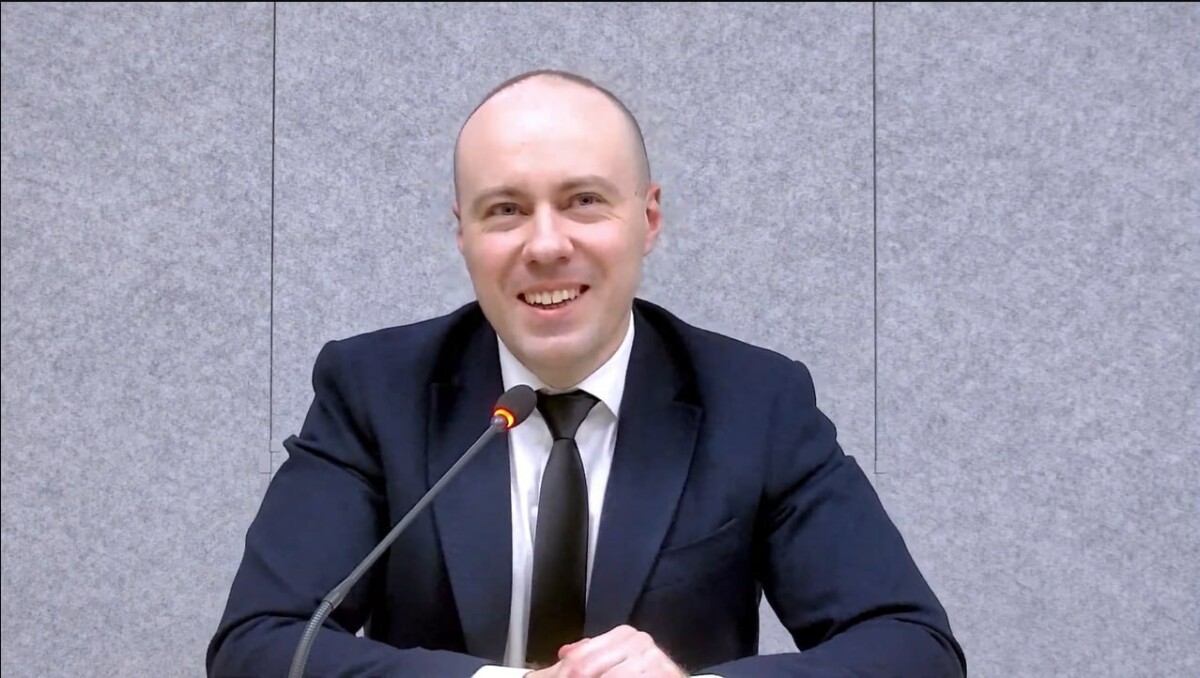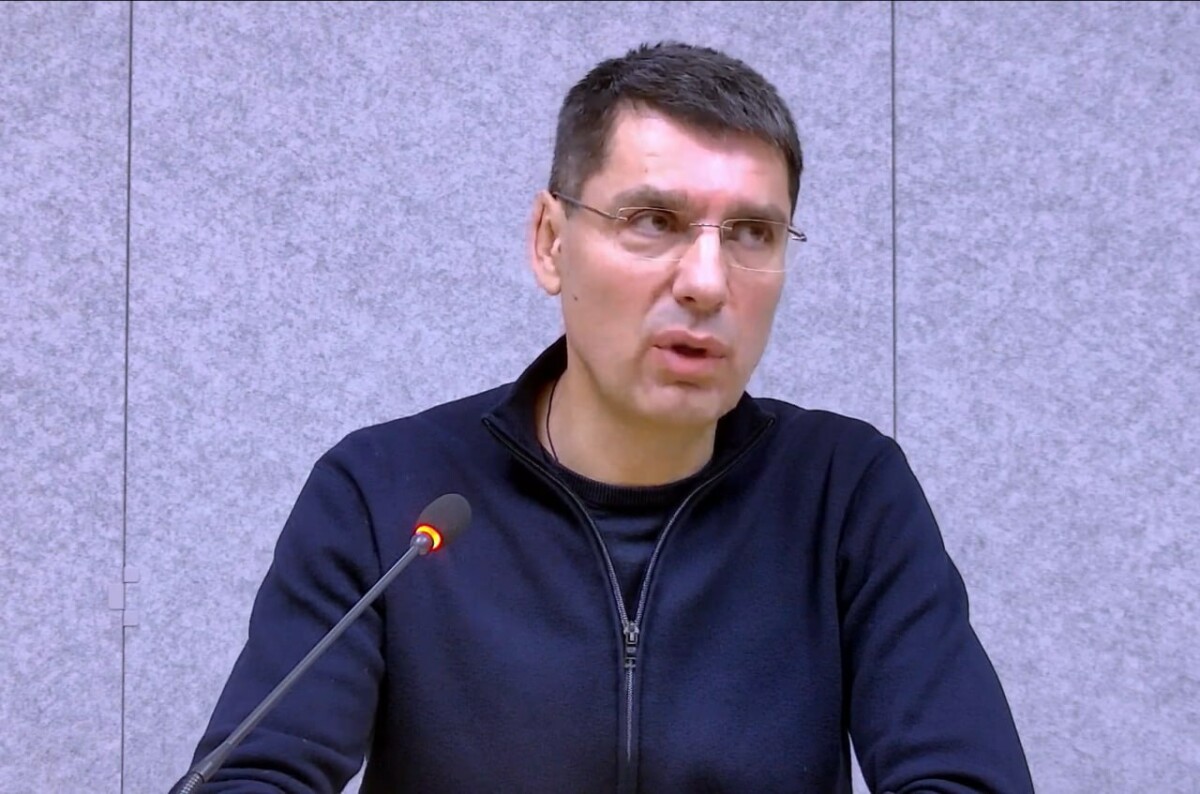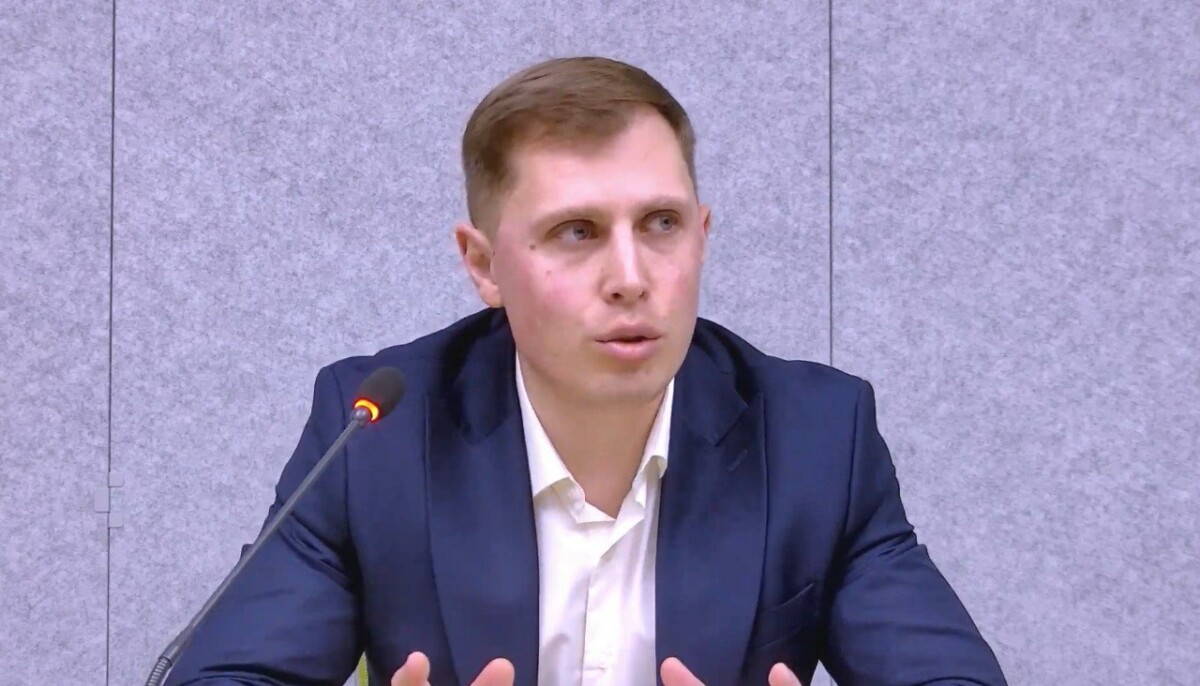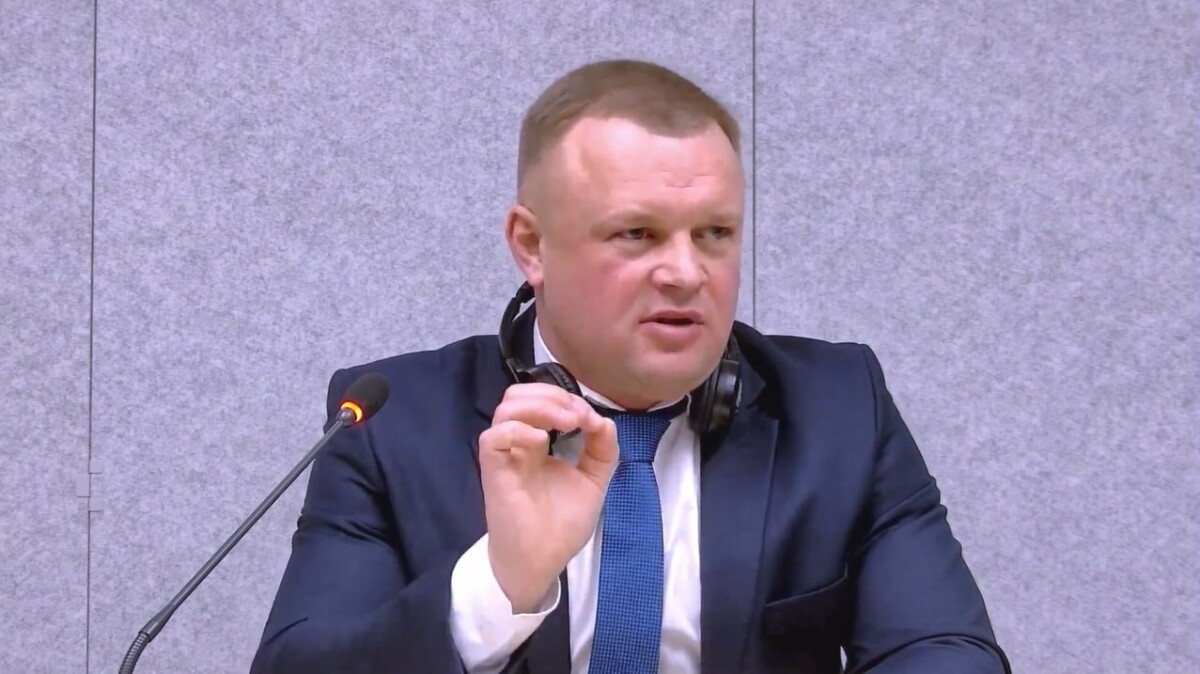

The material is being updated…
From today, candidates begin their interviews for integrity and competence, which will last until March 2. Actually, this is the last stage of selection. 11 applicants reached it.
The commission will assess:
- knowledge of national legislation and relevant international law and their application in the practice of the Supreme Court, the Constitutional Court of Ukraine, and the European Court of Human Rights;
- the awareness of the candidates of the provisions of international standards for the prevention and counteraction of corruption, other international treaties and conventions applicable in the activities of the NABU;
- the strategic and analytical thinking of candidates;
- the leadership and understanding of the mission and tasks of the NABU;
- the human resources management;
- the understanding of the fundamental principles of professional ethics;
- the effective personal, internal, and external communication, in particular, for positioning the NABU and its work in the society.
Oleksandr Tsyvinskyi
Head of the NABU Detectives Department
The commission provided the candidate with a possibility to speak his mind on the further work of the body, the vision of changes, and then asked about the details. In general, Oleksandr Tsyvinskyi comprehensively revealed his views on the work of the bureau and overcoming the existing challenges. In most issues, he covered two aspects — strategic and operational; he seeks to find a balance in the problems of prioritization.
Among the things necessary to implement in the work of the NABU: the development of a culture of strategic planning and analytics, a human-centered approach, digitalization, the development of the expert part of the work, etc.
Tsyvinskyi has been working at the NABU since its inception (2015), so, as he himself noted, he knows a lot about the internal affairs and “pitfalls” in the work, when and how they arose, and most importantly — how to establish the work.
The candidate told the commission that he would like more independence for the NABU. To do this, it is necessary to improve the forensic procedure and autonomous wiretapping (there is a law, but it is not really implemented, so the SSU has all the data that they want to listen to). He is convinced that the bureau is a separate body and should perform its work independently.
He also believes it is necessary to create a body (not controlled by the NABU), which would be responsible for conducting forensics, so that in high-profile corruption cases, it is conducted effectively, independently, and on time. Tsyvinskyi has an understanding that there is a public demand for the speed of solving cases, but now, the body often faces a situation where it is impossible to conduct an examination immediately because there is a queue of cases that need it. This delays the investigation, and therefore can cause negativity in society.
The commission also asked him how he would make decisions. Tsyvinskyi says that he collects data, consults with the team, and based on this he can make decisions without emotions, applying his own experience, conscience, and the conditions.
Povilas Malakauskas asked Tsyvinskyi: morality or procedurality in decision-making? Tsyvinskyi says it is difficult and depends on the specific situation, so, he will consider further events. To which the commission member replied that he would not have asked had he himself an answer.
The chair of the commission, Kucheriavenko, asked the candidate about the competition of powers of the bodies fighting corruption. Tsyvinskyi replied that he was convinced that these competitions were on Facebook, not in powers. When the case is not covered in the media, there are no problems in determining the jurisdiction. In general, it is understood that the jurisdiction of the NABU is clearly regulated and, if necessary, one can appeal to the PGO to resolve issues.
Regarding the role of the leader and establishing the work in the team, Tsyvinskyi says that a united team is about engagement, when the actions of each team member are aimed at achieving one idea. In his unit, he works on trust in the team, safety of the environment. This allows jointly looking for solutions, when everyone is free to express their own opinion, then everyone is responsible for the result.
Interestingly: Tsyvinskyi is an expert in polygraphy and considers it to be his hobby, and therefore he believes he is a person who understands psychology.
Semen Kryvonos
Head of the State Inspectorate for Architecture and Urban Planning of Ukraine
At the beginning of the interview, the candidate recalled that for a longtime, he worked as deputy head of the Odesa customs, where, despite the serious resistance of the system, they managed to achieve significant results. Later, he headed the State Inspectorate for Architecture and Urban Planning of Ukraine, where he launched automation and digitalization of processes.
When asked by the commission how his experience can be implemented as the NABU Director, Kryvonos said that he already had managerial experience in an “aggressive environment,” so, he is able to withstand challenges, particularly when it comes to jurisdiction. According to the candidate, under his leadership, the NABU will effectively communicate with those bodies that violate the jurisdiction of the Bureau. And in general, in his opinion, at the legislative level, it is necessary to introduce responsibility for those law enforcement officers who commit such violations.
Members of the commission recalled that in his plan for the development of the NABU, Kryvonos indicated the need to increase the number of employees of the institution, so, they asked why this was necessary. Kryvonos explained that since many NABU employees were currently fighting at the front, the load on the body increased. In general, to improve the effectiveness of the NABU, an increase in the number of detectives and analysts may be required. At the same time, to clarify whether in such circumstances it is necessary to increase the staff of the HACC judges because the number of corruption cases will increase, Kryvonos said that the number of cases should “constantly grow.” However, he did not answer directly the question of how this might affect the work of the HACC.
In general, according to Kryvonos, the main qualities of the NABU Director should be leadership, high responsibility, integrity, ability to withstand challenges, high communication qualities, level of self-education, and openness to society. And immediately after assuming the post of the NABU Director, Kryvonos plans to analyze the level of implementation of the NABU strategic plan and determine at what stage the Bureau is.
In his work, Kryvonos will rely on the team, but also wants to maintain interaction with the SSU, NACP, the State Financial Monitoring Service, the Accounting Chamber and, of course, the SAPO. Kryvonos considers himself both a leader and a head at the same time.
Kryvonos’ position on the NABU’s possibility to conduct wiretapping is interesting. Supposedly, he knows that the Bureau has already appealed to the SSU several times about this, so, he thinks that he will hold a meeting, find out what the technical or legal problem is, and, if necessary, engage international partners in solving it. To clarify that the SSU may not be interested in such capabilities of the NABU, Kryvonos replied: “as far as I understand, this is a problem in the equipment, as well as issues that need to be resolved technically from the SSU.”
At the same time, in the fight against corruption, according to Kryvonos, it is necessary to focus on preventive measures, eliminating the human factor and excessive bureaucratic burden. Priority areas are procurement, construction, corruption in the land sector, and the issuance of licenses for the use of natural resources.
To the remark that Kryvonos has no experience in law enforcement, the candidate replied that this could be an advantage for him because it would give an additional impetus to the work of the NABU. “I worked at customs, so, I am familiar with the process, I have enough knowledge and skills to understand what is happening in the cases,” Kryvonos said.
And to the question whether the candidate would agree to head the customs, if there were such a proposal, Kryvonos replied: “I submitted documents for this competition and I hope that the commission will give me the opportunity to become the director of the NABU. This is my goal and my dream. I wouldn’t even consider being the head of customs.”
Viktor Pavlushchyk
Senior Detective, Head of the Detectives Department of the NABU
The keynote of the interview with the commission was the emphasis on the practical knowledge of the candidate. He is convinced he has sufficient experience, considers it significant, useful, and tries to use it to achieve the goal — to overcome corruption. The candidate was convinced that his colleagues would support him in his desire to head the body.
It can be seen that Pavlushchyk personally knows about cooperation within the team. One of the priorities in the work is to strengthen the team inside, prevent burnout, create conditions for growth and motivate employees. He understands that every employee is a person, a personality, and many factors affect the result of the work.
The candidate sees direct communication with employees and an assessment of the work of detectives as the tools to strengthen the team.
Pavlushchyk wants to improve the analytical work in the NABU. He believes it is necessary to realize the functions of highly qualified analysts of the bureau. Pavlushchyk also sees the need to introduce specialization: so that specialists who understand a certain topic are engaged in the relevant criminal proceedings.
Another ambitious goal of Pavlushchyk as the director of the National Bureau is the quality work of the intelligence department. It should deal with operational development and undercover work, which will allow finding out about possible schemes and bribes earlier, and therefore will improve the work of the bureau.
Volodymyr Tserkovnyi
Senior Detective — Head of the First Detective Department of the Third Detective Division of the NABU Main Detective Division
Tserkovnyi has extensive experience in law enforcement. For 20 years, he was both a field agent and an investigator. Detectives under his leadership referred 46 acts to court, and the court has already issued 13 verdicts — all of which are indictments. When asked by the commission whether he considers the absence of acquittals to be a good indicator, Tserkovnyi unequivocally agrees because it justifies the resources spent by the NABU.
The candidate believes that the greatest motivation for colleagues was to refer difficult cases to the court or serve people with charges. Such successes he and his colleagues celebrated “with pizza and juice.” In his new position, Tserkovnyi manages several departments, among which is his previous one, but he does not see a conflict in this.
He assures that the work of the NABU is hampered by imperfect legislation, a small staff, unnecessary paperwork, and the lack of an expert unit. Improvements, according to the candidate, can be achieved through changes in the law. When asked by the commission how he plans to persuade MPs who are potentially in the focus of the NABU to vote for it, Tserkovnyi replied: publicity will help. MPs who block positive decisions would be condemned by the public.
At the interview, he was also asked why the HACC had not issued a single verdict to a senior corrupt official in 5 years. He says that it is difficult for the court to gather all the participants in complex cases at the hearing, especially when the defendants delay the consideration of the case; it takes a lot of time to study dozens of volumes of materials.
If he becomes director, Tserkovnyi seeks to speed up the introduction of electronic criminal proceedings, which will save time for the NABU. His dream is that all citizens who think about the crime are afraid of the consequences and understand that the risks of being punished are high.
Yurii Bielousov
Head of the War Department in the Prosecutor General’s Office
The commission asked the candidate about cases of war crimes and Russian aggression, his personal qualities, and the vision of the anti-corruption system.
Work in the department of war. He was appointed head of the department in May 2022 to strengthen the direction. Before he headed the department, 50 employees worked in this direction, and under his leadership, the department increased to 90 people, of whom 80 were prosecutors. He initiated the creation of territorial divisions in 9 oblasts — these are 120 prosecutors in the regions. Bielousov said that he reorganized the work of the department, and introduced a specialization for prosecutors because, according to the candidate, the prosecutor cannot investigate everything. Moreover, the candidate, as a leader, develops IT solutions in the work of the prosecutor’s office with the support of the EU. Bielousov’s department became a pioneer in the introduction of Ecase.
The candidate for the position of the NABU Director also summed up the work of the “war” department. 290 suspects, about 100 people sent to court, there are first sentences. A huge proceeding has been opened regarding the crime of aggression by the entity, which is the military-political leadership of russia — there are 639 suspects in it.
The candidate told the commission that he did not perceive the position of the NABU Director as a “gift.” He assured that he had worked in difficult conditions and under pressure. He mentioned his work in introducing the direction of investigating human rights violations among law enforcement officers and initiating cases against patrol police officers, representatives of the penitentiary service, and police leadership.
When asked by the commission how the candidate planned to lead the NABU having no experience in the fight against corruption, Bielousov said that he had the necessary managerial experience and he personally, as the head of the NABU, should not investigate corruption offenses. According to the candidate, the NABU Director should have a combination of leadership and managerial qualities:
“It’s important to me what I leave the body with. A manager who does not have leadership qualities will not be able to protect the NABU, he will not be able to create conditions. And he will not be able to convince subordinates of the big ideas for which this institution was created. Without leadership qualities, the director will not do his job.”
Veronika Plotnikova
Head of the Department for the Study of Prosecution Problems of the National Prosecution Academy of Ukraine
The candidate told a lot about her work experience. She has never worked at the NABU and does not have much experience in investigations, but she has long been engaged in studying the practice of the ECHR and the implementation of decisions of this Court, and also has experience in matters of torture by law enforcement officers. She wants to join the NABU because corruption is a direct source of many crimes.
Plotnikova stresses that she sees the role of the NABU Director as more managerial — to form a working field, strategies and plans, build a quality team, and prepare subordinates for resistance. This is how she explains the possible skepticism of the public about her because the candidate has little experience in procedural activities.
The first steps she would take as a Director are external and internal audit of the NABU’s work. Plotnikova also stressed zero tolerance to corruption. The candidate plans to create such conditions so that the person who committed the crime becomes at least not respected in the team and suffers inevitable punishment.
The commission asked about her attitude to possible conflicts with men who predominate in anti-corruption bodies. Plotnikova had previously called herself a “gender symbol” of this competition and replied that her self-esteem did not depend on men’s opinions about her, and she would make all attempts at harassment impossible.
Plotnikova would like to teach subordinates that the value of the team is higher than her own ambitions. In her opinion, it is also important for employees to know the basics of OSINT intelligence, ways to protect personal data, and the matters of tracing and subsequent confiscation of assets of Russians or traitors. Plotnikova talked a lot about the importance of understanding European legislation and conventions in the context of our path to the EU.
At the interview, the topic of whistleblowers of corruption was mentioned. Plotnikova said that the protection of whistleblowers was also important to her because earlier, during the creation of the State Strategy for Combating Torture, she and her colleagues had mentioned that it was necessary to create a special system for reporting the facts of torture. Therefore, the issue of whistleblowers goes beyond the fight against corruption. And regarding the anti-corruption system, she notes that currently, the information channels are not sufficiently protected, and Ukrainian society, due to Soviet traumas, will negatively treat whistleblowers as “informers.”
Serhii Hupiak
Head of the Investigative Department of the Territorial Department of the SBI
“If the first 7 years in the NABU activity were a period of building and formation, then the next 7 years should be a period of development and achievement of new strategic goals,” he said in his introductory presentation.
According to the candidate, everyone can be the leader, but only leadership makes it possible to introduce something new, makes it possible to lead the team and make decisions in difficult situations. The NABU Director, as Hupiak says, is both a manager and a trend of the body. Not having a leadership opinion on such a trend is a useless tenure.
When asked about his plans to build the work in the team, Hupiak noted that his main principle in working with the team was the concept of interest. At the same time, from the beginning of the work in the NABU, the candidate plans to rely primarily on people inside the institution. On those who are still interested in the work, and on those who have considerable experience in the NABU and were engaged even before the stage of its creation.
But at the beginning, Hupiak will collect information about the work of the body from other sources. In his opinion, international partners and civil society organizations that contribute to the development of the Bureau are also aware of the problems and will be a source of information for him. But Hupiak will approach this information objectively, so, when it is comprehensive, the candidate will be able to determine where the truth really lies.
When asked if it is possible to evaluate the work of the NABU through understanding the economics of the investigation process, Hupiak said that he would not make such assessments only in terms of economic performance. After all, each proceeding is a practical experience, it is the result of intellectual work, even when it comes to closing the proceedings. The need to close cases indicates that this fact is not criminally punishable, and this is already a result. Therefore, the amount of reimbursed funds is an incommensurable assessment of the activities of the NABU.
Interestingly: the commission asked about the candidate’s hobbies. Hupiak replied that since he was a child, he has been engaged in martial arts, including judo, kickboxing and boxing. And now, too, although not systematically, he does sport in his spare time because it helps to switch to other thoughts. But he was surprised how the commission learned about such facts of his biography because he had not mentioned that in his biography.
Maksym Vorvul
Deputy Head of the 3rd Detectives Department of the 4th Detectives Division of the Main Detectives Division of the NABU
When asked by the commission how he works with ineffective employees, Vorvul says that in building the work of the team, he proceeds from the principle that every person has certain abilities. Someone is good at drawing up procedural documents, someone has an operational component, someone else has technical skills that will help in the implementation of tasks. Therefore, if the employee does not show the desired results, he is trying to find a strong point that will help in the common cause.
When the commission asked what powers the Director of the NABU lacked, Vorvul said that the existing functionality was sufficient. However, there are issues that are regulated by law, but limit the Bureau’s ability to investigate cases against certain individuals. For example, regarding MPs.
Vorvul recalled the story when a person reported to the NABU that an MP demanded a bribe of UAH 40 mln. According to the law, the detectives then forwarded this report to the Prosecutor General’s Office and received a reply that there were no grounds for starting an investigation. Only a couple of months after the disclosure of such information in the media, the Prosecutor General’s Office registered such proceedings, but time was lost, and it was impossible to collect evidence. Therefore, it is necessary to legislatively regulate everything in such a way that the NABU can start such investigations.
At the same time, Vorvul has no comments on the work of the previous NABU Director. According to him, the previous Director faced many challenges. “I was not in his shoes, so I cannot give an assessment of what I would have done in this or that situation. We can only state that he was under serious pressure.” The candidate is convinced that there are no longer such circumstances, but there will be others, perhaps more difficult. But the need for the NABU to influence the entire anti-corruption policy should only increase.
At the same time, the commission immediately noted that in 7 years, Ukraine would not be able to get into the top four of the Corruption Perceptions Index, as Maksym Vorvul wanted, but asked how he planned to organize such growth. The candidate said that if business in Ukraine saw that public procurement was transparent, there would be a perception of facts as such that exclude corruption. And likewise, if society sees that corrupt officials are given real sentences, this will confirm the principle of punishment.
Oleh Opishniak
Prosecutor of the Department for Prevention of Offenses in the Prosecutor’s Office of the General Inspectorate of the Prosecutor General’s Office
He managed the district prosecutor’s offices and now basically fights corruption among prosecutors. In the Prosecutor General’s Office, he focused on the registration of proceedings, while in the regions, he had more experience in investigations, for example in the field of forest and natural resources management. The candidate wants to head the NABU to change the country for the better and help us integrate into the EU faster.
If he becomes a director, he plans to improve the system of continuous professional development, the coordination of the NABU with other bodies and ensure that the NABU becomes an autonomous body. For the autonomy, the ability to conduct wiretapping without the mediation of the SSU is critical. In addition, Opishniak believes that the Bureau should not spend resources on small cases, but focus on important big ones.
The commission asked a lot about Opishniak’s views on the values of the NABU. In his opinion, the team is formed by sincerity, mutual trust, and lack of fear to tell the truth. And the director himself should be both a leader who listens to the team and an administrator who cares about sufficient funding and good working conditions. He would like to teach his subordinates to work with digital data and investigate cases based on open data.
Opishniak said that he admired Churchill and compared him to the president of Ukraine. He added that if he could talk to Zelenskyy, he would certainly ask to provide the NABU with financial resources for effective work.
The candidate’s recipe for preventing corruption is the inevitability of punishment and rejection of corruption in the society.
Roman Osypchuk
Head of the Internal Control Department of the NABU
The candidate told about the experience that, in his opinion, will help him professionally and effectively perform the duties of the NABU director. In 2017, he introduced the anti-corruption system 37001 (ISO standard). The NABU became the first among state bodies to implement this standard and pass an independent audit by an international company and receive a certificate. Osypchuk noted that the effectiveness of the implementation of this standard might be evidenced by the fact that during the existence of the NABU, not a single employee was prosecuted for corruption or property crimes.
In 2021, Osypchuk was appointed deputy head of the commission for the development of the NABU institutional development strategy. A plan for its implementation was formed, adopted, and developed.
Osypchuk believes that the NABU does not need radical reform and reboot. As director, he will follow the plans to strengthen the NABU in the areas of improving the effectiveness of the pre-trial investigation through the professional development of NABU employees, digitalization, development of the NABU material and technical base, automation of the data collection and processing, promotion of institutional sustainability and independence, as well as counteraction to the armed aggression of russia.
Interestingly, this is Osypchuk’s 3rd competition. Before that, he applied for the head of the NACP and the BES. He believes that the key personal quality of the future director of the NABU is leadership, the director “should not be too self-important.” Moreover, among other important qualities, the candidate listed zero tolerance to corruption, professionalism, and development.
Serhii Naumiuk
Head of the 4th NABU Detectives Division of the NABU Main Detective Division
Since the candidate worked for a long time in the SSU and is currently mobilized as a reserve officer of the Security Service, the commission asked about the division of his loyalty between the institutions in which he works. Naumiuk replied that during his work in the NABU, employees of his unit participated in documenting corruption against SSU employees, and this did not bother either Naumiuk or his subordinates. Therefore, he believes that he showed not in words, but by deeds, that he would not turn a blind eye to corruption in any institution.
Like other candidates currently working at the NABU, Naumiuk plans to initiate an increase in the number of employees of the institution. When asked why this should be done, the candidate explained with specific examples why, in his opinion, the NABU should employ not 700 people, as now, but 1,000.
And to clarify the possible alternative options for improving the efficiency of the Bureau, in addition to increasing the staff, Naumiuk replied that this would also be a solution in the field of technical support. It is about the automation and digitalization of all internal processes, both in the investigative sphere and in relation to information security. That is why the automation of procedural activities, in particular the eCase service, is important; when it is fully implemented, it will reduce time.
When asked how exactly the candidate plans to get the necessary results for the NABU at the parliamentary level, Naumiuk said that it was simply necessary to communicate with people — both with representatives of specialized committees and with individual MPs. And Naumiuk is ready to solve the tasks of the highest level, if necessary — at the level of the president and the government.
In general, Naumiuk is convinced that the NABU should develop cooperation with all law enforcement agencies, state and management bodies. Because the fight against corruption is conducted not only by law enforcement agencies, but by the entire system, which includes legislative bodies, the Cabinet of Ministers, and local self-government bodies. “And specialized law enforcement agencies, such as the NABU, are not even a scalpel, but a tip of the scalpel, when certain problematic moments that are obvious to everyone are removed.”
The candidate’s opinion on the NABU initiating cases based on journalistic investigations is also interesting. According to him, such relations are established by law. “If there are grounds in the publications to start an investigation, we will enter them in the register and start them. But the most effective stage is the secret stage, when the persons involved do not yet know that the law enforcement officers are interested in them. If we do this from media materials, then the effect of surprise is lost.”




